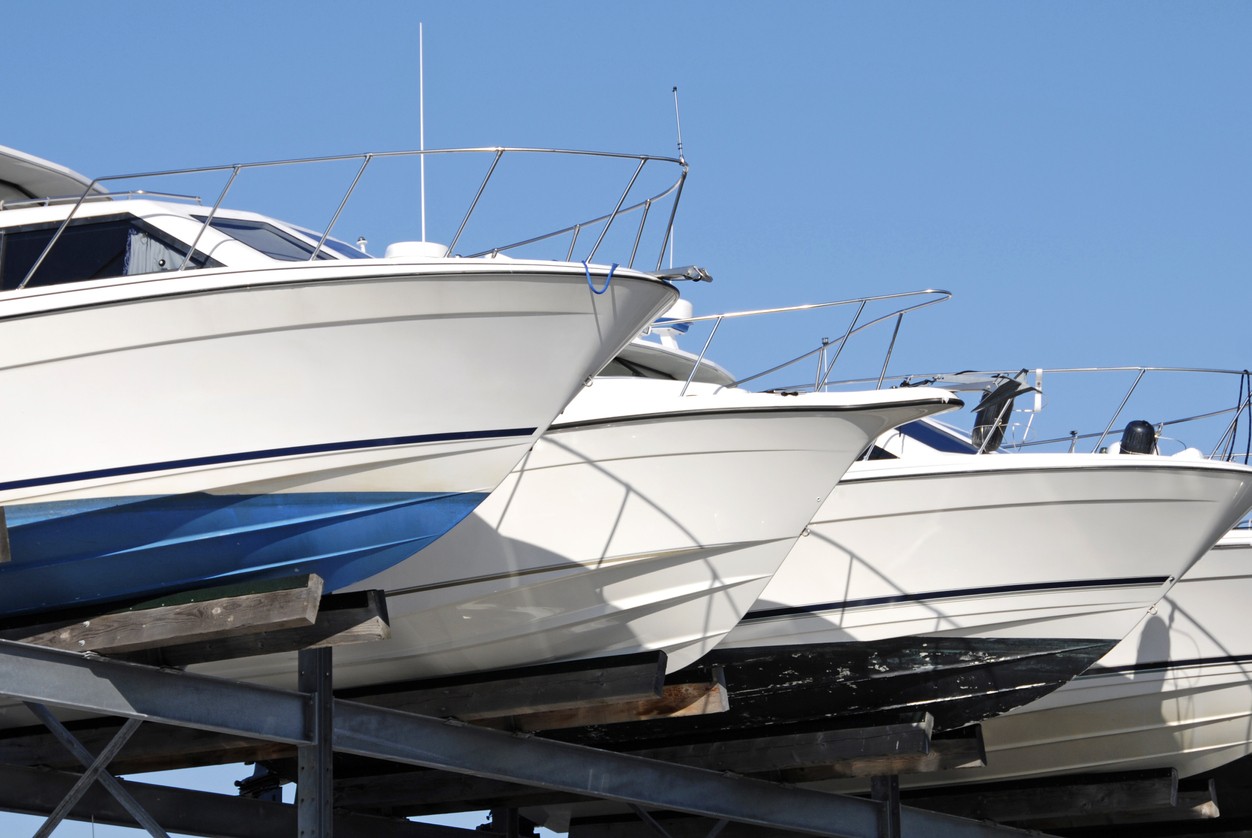
Boat Storage Options for Hurricane Season
August 17, 2021
With the 2021 Atlantic hurricane season already ramping up, boat owners and marina managers know that preparation is key to surviving the worst weather conditions. Boat storage is a critical issue when preparing for hurricane-force winds and tidal surges. In addition to protecting assets with marina insurance, knowing how to store boats can help to reduce expensive property damage or loss. In this guide, we will explore best practices for storing vessels when hurricanes threaten the coast.
Lessons Learned from Previous Hurricane Seasons
Boats are at a high risk of severe damage or loss when hurricanes strike. The high winds and wave activity can tear boats from their moorings, leading to widespread destruction of vessels. In 2020, Hurricane Sally caused the loss of over 500 boats in Escambia and Santa Rosa Counties along Florida’s Panhandle. The Florida Fish and Wildlife Commission reported that over 100 of these boats were responsible for discharging pollutants into sensitive waterways. Thousands of other recreational vessels were lost or damaged during the hurricane season, with millions of dollars in losses reported to marina insurance and recreational boating insurance providers.
Different Conditions, Different Solutions
When a hurricane approaches, weather forecasters attempt to predict the specific conditions coastal residents can expect. Some hurricanes produce significant tidal surges which can threaten marinas and coastal areas with higher-than-normal water levels. Other storms may produce high winds or excessive rain, depending on the speed and intensity of the storm itself. Because of these variable conditions, hurricane preparation for boat storage is not a one-size-fits-all solution.
Boat storage for hurricanes typically fits into three potential options:
- In-water storage of moored vessels
- Storage out of the water in enclosed facilities or on dry land
- Removal of vessels to inshore locations
Each of these options presents significant challenges to marina operators and the boat owners themselves. Choosing the right storage method can spell the difference between an unscathed boat or one that receives severe damage or even loss.
In-Water Storage
Marinas typically provide docking or mooring spots for guest vessels. When a hurricane threatens boats on marina properties, securing them requires several steps. First, all equipment on deck must be removed and stored below or in a secure location. This equipment can include grills, furniture, electronics, and outboard motors.
Next, the vessel itself must be secured. Boat owners can use multiple lines on both sides of the vessel to reduce movement when waves and wind arrive. These lines should be protected from chafing and doubled up to withstand rough conditions. Ample use of fenders or bumpers can protect delicate surfaces from contact with dock pilings and structures.
Finally, all service lines must be disconnected to prevent damage. Boats moored on marina properties may receive water and shore power; by disconnecting them, the chance of a catastrophic fire is greatly reduced.
As an alternative storage method, boats can be evacuated to calmer inshore waters away from marinas. Coves or channels will provide a break from high winds while reducing tidal influence. Even in these calmer storage areas, the use of multiple anchors and lines will reduce the chance of a boat breaking loose and being lost to the storm.
Onshore Dry Storage
Larger marinas often have enclosed storage spaces for boats and other recreational vessels. These help to shelter boats from damage. Barring dry storage buildings, many marinas have space onshore to store boats. These boats are secured to the ground by using anchor bolts affixed into the pavement and concrete structures to serve as solid foundations for cables or lines. As with any long-term boat storage, all loose equipment must be secured belowdecks and water/electrical lines removed from the vessel before storing on land.
Evacuating to Inshore Locations
Wherever possible, boats that can be trailered should be removed from marina properties and stored inland. This boat evacuation plan is often used by marinas in areas prone to hurricanes and tropical storms. Unfortunately, not every boat can be trailered; large yachts or vessels must remain moored or in drydock areas. In those cases, the above preparatory steps should be taken to secure vessels from damage or loss.
Before hurricanes approach, marina owners must review their marina insurance policies to ensure they meet the needs of the facility. Marina insurance helps to cover the costs associated with property damage or loss and serves as the backbone of any risk management strategy. With ample preparation and attention to detail, marina operators can help their boating clients protect their vessels against severe storms, allowing the boats to avoid expensive damage.
About Merrimac Marine Insurance
At Merrimac Marine, we are dedicated to providing insurance for the marine industry to protect your clients’ business and assets. For more information about our products and programs, contact our specialists today at (800) 681-1998.
